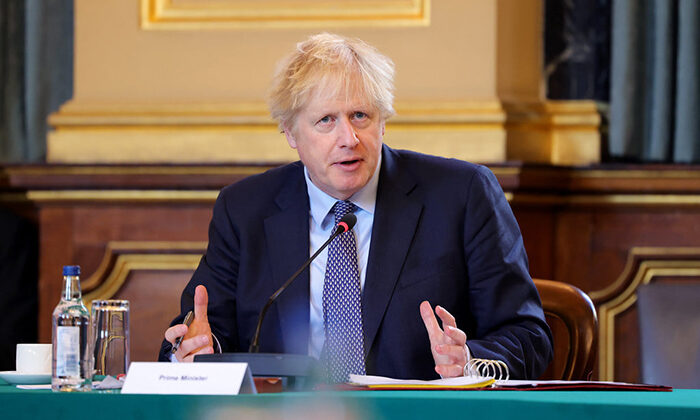
Boris Johnson, Prime Minister of the United Kingdom. There have been more than 1.6 million confirmed cases of coronavirus in the country and nearly 60,000 people have died, government figures show. COURTESY PHOTO.
The UK has become the first country in the world to approve the Pfizer/BioNTech coronavirus vaccine for widespread use.
British regulator, the Medicines and Healthcare Products Regulatory Authority (MHRA), was quoted Wednesday by the BBC as saying the jab, which offers up to 95% protection against Covid-19 illness, is safe for roll out.
Immunisations could start within days for people in high priority groups.
The UK has already ordered 40m doses – enough to vaccinate 20m people, with two shots each.
Around 10m doses should be available soon, with the first doses arriving in the UK in the coming days.
The BBC reports that this is the fastest ever vaccine to go from concept to reality, taking only 10 months to follow the same developmental steps that normally span a decade.
Although vaccination can start, people still need to remain vigilant and follow coronavirus rules to stop the spread, experts told the BBC.
That means sticking with the social distancing and face masks, and testing people who may have the virus and asking them to isolate.
A Department of Health and Social Care spokesman said: “The government has today accepted the recommendation from the MHRA to approve Pfizer/BioNTech’s Covid-19 vaccine for use.
“This follows months of rigorous clinical trials and a thorough analysis of the data by experts at the MHRA who have concluded that the vaccine has met its strict standards of safety, quality and effectiveness.
“The joint committee on vaccination and immunisation will shortly also publish its latest advice for the priority groups to receive the vaccine, including care home residents, health and care staff, the elderly and the clinically extremely vulnerable. The vaccine will be made available across the UK from next week.”
The US, which has ordered 100m doses, and Europe, which has bought 200m, are expected to approve the vaccine within weeks, according to the Guardian.
What is the vaccine?
It is a new type called an mRNA vaccine that uses a tiny fragment of genetic code from the pandemic virus to teach the body how to fight Covid-19 and build immunity.
An mRNA vaccine has never been approved for use in humans before, although people have received them in clinical trials.
The vaccine must be stored at around -70C and will be transported in special boxes, packed in dry ice. Once delivered, it can be kept for up to five days in a fridge.
Who will get it and when?
Experts have drawn up a provisional priority list, targeting people at highest risk. Top are care home residents and staff, followed by people over 80 and other health and social care workers.
They will receive the first stocks of the vaccine – some as soon as next week. Mass immunisation of everyone over 50, as well as younger people with pre-existing health conditions, can happen as more stocks become available in 2021. It is given as two injections, 21 days apart, with the second dose being a booster.
What about other Covid vaccines?
There are some other promising vaccines that could also be approved soon.
One from Moderna uses the same mRNA approach as the Pfizer vaccine and offers similar protection. The UK has pre-ordered 7m doses that could be ready by the spring.
The UK has ordered 100m doses of a different type of Covid vaccine from Oxford University and AstraZeneca. That vaccine uses a harmless virus, altered to look a lot more like the virus that causes Covid-19.
Russia has been using another vaccine, called Sputnik, and the Chinese military has approved another one made by CanSino Biologics. Both work in a similar way to the Oxford vaccine.
Reporting by the BBC and the Guardian

